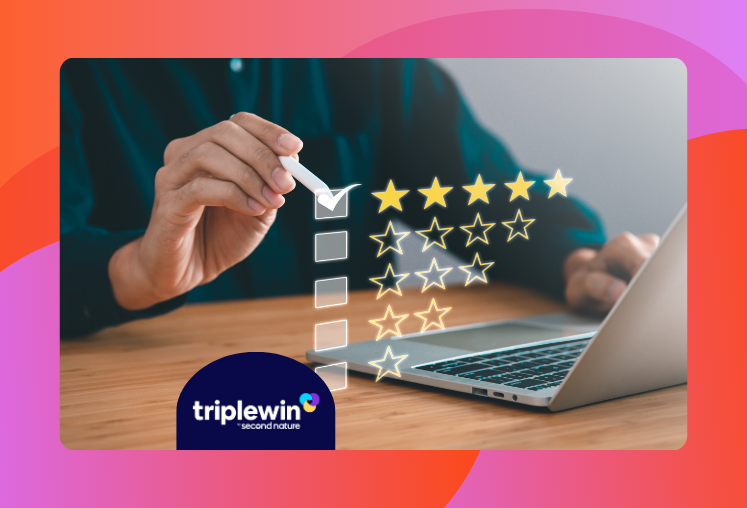In the dynamic world of residential property management, mastering the art of lease management is more than just a strategic business move; it's the cornerstone of cultivating strong, trusting relationships between investors, property managers, and residents. After all, at the heart of every lease agreement is something profoundly personal: a person's home.
Lease management extends far beyond the realm of contracts, finances, and legal compliance; it's about understanding and respecting the unique needs, expectations, and concerns of the people you serve. It's about combining professional acumen with empathy, maintaining a human touch in an industry that can often seem dominated by numbers and legal jargon.
In this article, we outline six steps in the lease management process and how you can optimize each one. Along with three experts, we'll explore the lease management process, focusing not only on the technical aspects but also on the human elements that can make all the difference. We'll delve into why a compassionate approach to lease management can lead to better resident relationships, improved resident retention, and, ultimately, a more successful and rewarding property management experience.
Meet the experts
Melissa Gillispie
- Director of Leasing & Property Management
- Located in Florida - 5,600+ Doors Under Management
David Galant
- Owner / Principal Real Estate Broker (Licensed Broker in Utah & California)
Licensed Continuing Education Instructor Utah Division of Real Estate - Most recently, with Atlas Real Estate as a Regional Director
- Located in Utah
Kristin Leet
- Leasing Agent - Boots on the Ground
- North Central Pennsylvania - 600 Doors Under Management
What is lease management?
Lease management is the process of overseeing and controlling all aspects of lease agreements between the investor and the resident.
It includes tasks such as drafting lease agreements, screening potential tenants, handling rent collection, managing lease renewals, and maintaining clear communication lines between all parties involved. It also includes lease renewals and termination of the lease when a resident is ready to move out.
Effective lease management ensures a seamless experience for both residents and property owners, aiding in resident retention and maximizing rental income for your investors.
Why is lease management important?
Our panel has plenty of advice on tactics, KPIs, and processes for effective lease management. But first, they say, it’s important to establish why it matters to get it right.
“When you think about housing, it’s a basic human need,” Melissa says. “That’s the human element. Obviously, we lean in on [property management] automation and technology to support us, but I think that as things have changed in our industry—and this generation of renters has changed—so must our processes evolve in order to meet the needs of the people that we serve and to impact our local communities.”
David adds, “One of the basic human needs is shelter. Another way to look at it is some of the most stressful events in your life are death, divorce, and moving. So we’re dealing with high-stress situations. To be fair to the owners, to the prospective residents, and to your team, the lease management process needs to be efficient, organized, and systematized.”
According to Kristin, that’s part of achieving a Triple Win: “A guiding principle is helping qualified tenants find a place that is safe, affordable, and something that they can be proud of. I’m also making sure that I’m doing my due diligence to our clients so they’re getting the best return. We want to give everyone involved an experience that's worthwhile and makes them want to continue to do business with us.”
6 Steps in the lease management process (from property prep to lease renewals)
The leasing process is complex, and stretches beyond just the lease term. From property preparation and lease negotiation through lease end and move-out inspection, it's a cycle that requires attention to detail and tactical execution at every stage.
1. Preparing the property
Before listing a rental property, ensure it's in excellent condition to attract potential residents. This may include repairs, painting, professional cleaning, or upgrading certain features.
“We have what's called our JWB Livability standards,” Melissa says. “Does this home meet our company standards? If it doesn't, then we need to make sure we're addressing those things. The more that you invest on the front end in making sure that a property is showing in an amazing way you're going to get that back with a resident who is proud of the place, going to take care of it and lead to a hopefully long-term resident.”
2. Marketing the property
Effectively advertise your property on appropriate platforms to reach your target audience. Quality photos, detailed descriptions, and highlighting of key features can help attract potential tenants.
Kristin describes how important the details are here. “Are your pictures fantastic? Are there clear pictures of each room? I get comments all the time from people who say they love that you can get a feel of the property from our ads, just from the pictures or video. Video is such a powerful tool.”
3. Property tours
Hosting property tours is an integral part of the lease management process. It's an opportunity for potential residents to view the property firsthand and for you to showcase the property's best features.
This is where your best sales skills come in. Kristin talks about how this is the chance to be the face of your brand. “I'm the one they see in the beginning, I'm the face that welcomes you in, makes you love the place. It’s so important to be positive and create this sense of home and comfort because the rest of it can be more stressful.”
Melissa emphasizes that the property tour is the time to “warm it up. Our leasing agents are the ones who can draw people in and get people to open up and tell them what they're really looking for.”
4. Resident screening and selection
Next, you’ll conduct thorough background checks, credit checks, and rental history reviews on potential residents. This helps ensure you select reliable residents who will care for the property and meet their financial obligations.
This is an intense part of the process for the potential residents. Kristin explains: “It’s meaty. We're going to ask for every single piece of information, and then we're going to let them know if they’re approved. As aggressive as that can sound, it's up to me to basically say, ‘Listen, we know it's a lot, but it's a lot because it's worth it.’”
5. Lease signing
Once a resident is selected, you might conduct a lease signing meeting. Review the lease terms, answer any questions, and have all parties sign the lease agreement. It’s important to be transparent about the terms of the lease beforehand and ensure that residents feel comfortable and understand what they’re signing.
Other property managers might send out a digital lease for the residents to electronically sign, saving them a trip to the office. This can be convenient for everyone, but it's important to make sure that residents understand their lease obligations and responsibilities. A tool like Resident Onboarding can help residents better digest their lease in a way that makes it easy to understand.
Kristin again: “We have a very transparent website. Our leases are on there, so people can actually read the lease before they even come to us.”
6. Lease renewals
Monitor lease end dates and communicate with residents in advance about renewal options. Offering incentives or showing appreciation can encourage lease renewals and increase resident retention.
Melissa explains that their company aims for long-term leases for a triple win: “A long-term lease is that security for the client, and it also locks in rental rates for the resident. It comes back to that triple win concept: the resident wins because they're not subject to significant rent increases based on the market every single year. It's great for the client because they have a little more assurance of long-term occupancy. And then we win because we hit our goals! And we all love to hit our goals.”
What slows down the lease management process
A slow lease management process can be both frustrating and costly. It can extend vacancies, angering investors, and it can delay renewals or result in applicants backing out. Here are some of the key roadblocks that slow down leasing and increase operating expenses.
Skipping the move-out pre-inspection
Inspecting a property once you get notice that a resident is moving out can save a huge amount of time during turnover. By getting ahead of turns, you can create a list of maintenance items and preschedule vendors to get the work done quickly. That way you're not waiting until the unit is vacant to start planning the turn.
Manual process tracking
Once you have a property listed and future residents applying, you need to stay on top of your process. If you're tracking application stages manually, you're going to have a much slower approval process, and risk errors in data or communication.
Inefficient showings scheduling
Scheduling showings by phone or simply entering them into your calendar without documenting them elsewhere can cause missed appointments. Top property managers use online scheduling tools that can then sync to your calendar and send automated reminders to both your leasing agents and your applicants.
Slow resident screening
Without the right screening tools, it can take a long time to run background and credit checks on applicants. Make sure you're using tools that are directly integrated with your property accounting software and sync data automatically, rather than relying on manual processing.
Chasing down signatures
Lengthy lease documents can be overwhelming to prospective residents, and lead to delays in signing. That leaves your team chasing down signatures, wondering if they're being ghosted. Tools like Resident Onboarding can expedite the process and get leases signed faster.
Poor renewal communication
You need to know well in advance whether a resident is renewing or moving out. If you're not communicating renewal offers clearly, early, and often, you're less likely to secure that crucial renewal.
4 lease management technologies for every property manager
Of course, one of the best tools at a property manager’s disposal for lease management is technology. Property management software and other digital solutions can streamline, automate, and simplify nearly every aspect of the lease management process.
Especially since the 2020 pandemic, technology and automation have taken over in the industry.
“That change [to digital] was inevitable,” David says, “but Covid really accelerated it. People were starting to dip their toes in the water with video tours and better pictures, and better online presence. And then Covid just forced that change.”
Our panel shared some of their insights on the best places to leverage that tech to make your process the best it can be.
Self-showings
“Almost every company I've ever spoken with at this point does some level of self-showing,” Melissa said.
“We use Tenant Turner and CodeBox,” David said. “And then leases are put in and automated through Buildium, which we use as our software suite.”
Property management software
We’ve written a lot about the best single property management software, property management accounting software, and property management automation, so we won’t get in-depth about it here.
There are dozens of property accounting software options on the market, each with its own integrations and feature sets. As a whole, property accounting software helps support client management, lease administration, maintenance workflows, payment processes, resident relationships, and more.
Virtual assistants
Virtual assistants have grown as a major solution in the property management space. Especially in single-family rentals, jobs can be spread out across large geographic regions, and virtual assistants make it possible to serve those regions equally.
Kristin explains the value of a virtual assistant: “We have one dedicated person here at the company that does our applications, and the reason why we do that is that it eliminates any kind of discrimination. She is a virtual assistant; she does not meet with people in person. It eliminates her having a personal opinion while she's scoring the application. She has contact with them via email and things like that.”
Digital solutions and video
Digital marketing and video tours or social media posts are one of the leading ways to capture attention and serve potential residents.
“I get in front of a camera with a tripod,” Kristin says. “I introduce myself and talk about the company that I'm from. I tell them what the address is, I give them a whole walkthrough tour, and I do an outro. When it’s over, they know what our website is, they know how to apply, they know how to book a tour.”
“That personal touch right there helps get people in the door. It's not catfishing someone into believing that a property is any more than what it actually is because they're going to see it. It’s really presenting a property for what it is in the best way possible.”
Best practices for effective lease management
Melissa, David, and Kristin shared some of their top tips for building a better lease management process.
Deliver digital content and contactless engagement
The modern renter is looking for faster, more convenient, and, often contactless interactions with their leasing and property management teams.
“Renters more and more want contactless, like you get when you DoorDash something or order on Amazon and all of that—that’s the new norm,” David says. “The consumer is expecting a thorough, interactive, high-quality experience with digital solutions and online content.”
Be flexible and responsive
“Remote work has increased migration to different markets in different states,” David says. “Time zones have become blurred. Customers want responsiveness outside of normal Monday through Friday 8 a.m. to 5 p.m. business hours for inquiries on vacant properties.”
He adds, “I think the pace of the leasing process has increased in terms of the speed. We're dealing with a more informed consumer. They want more information upfront, they want it quickly, and they want to make a quicker decision. There's a feeling that the pace is faster.”
“I think that's the new norm, and I don't think that's necessarily a bad thing. It causes people to up their game and be better. And I think it benefits the property management ecosystem.”
Stick to your criteria
There are laws guiding leasing standards, and it’s critical that your criteria are fair and apply consistently.
“Our criteria are firm,” Kristin says. “Every single applicant goes through the same criteria and same processes, and we don't deviate from that. We don't take your personal situation into account or make exceptions for people.”
“Sure, you can customize and meet people where they're at,” Melissa says. “But there has to be some level of, 'what is the standard you are setting?' Because ultimately, you want to treat people the same. And I think with leasing specifically, we are obligated to.”
Clearly define workflows and process
All three of our panelists describe clearly defined processes and roles within their company for the leasing process.
Leasing agents provide that first touch and personalization; then you may have a virtual assistant or leasing assistant who helps follow up and get applications in; then it may go to a supervisor who approves the application, all the way back to the leasing agent who sends the lease out.
“We use a process for every single thing that we do,” Kristin says. “If we follow it correctly from start to finish, there's not a point where anyone can say: ‘You didn't approve me because of this.’”
Follow up on feedback
David explains that asking for feedback is key to their leasing process. “We reach out to prospective residents that toured but haven't moved forward, and we ask them, ‘What did you see? Do you have any feedback on the property? We're very direct because it will help us market the property better.”
“One thing we do in our department meeting with our leasing team every week is to have a structure for them to talk through any feedback they received from showings the previous week,” Melissa says. “Then we take immediate action on that feedback when needed. I think you get to make changes and actually improve when you ask for feedback.”
Pay attention to pricing
“You need to understand where your price is at,” David says. “Is it reflective of the market? Before we engage with an owner prior to a vacancy, we actually put together a spreadsheet that's almost like a rental analysis appraisal. And we'll have subject properties, we'll have adjustments, and we’ll make a recommendation.”
If a property isn’t selling, evaluating price fit is a key step.
“We have what's called a 10-day rule,” Kristin says. “If it's on the market for 10 days and we haven't gotten an application, we drop the rent. It's an expectation that we set with the owners when we put the property on the market: Is it better to take less rent, or is it better to just leave your property vacant? And nine times out of 10, they want to get the rent.”
“One thing that's cool is we have rent escalations built into our lease agreements,” Melissa says. “And so even if we have to make a rent reduction while it's on the market in order to really drive in more leads and get it to move, we're then building in an escalation so that hopefully, by the end of that lease term, we sign long-term leases.”
Focus on customer service
“Since Covid, there seems to be a more consistent customer service experience across the industry,” David says. “Everyone's voice is amplified, especially the consumer. Their vote counts, thanks to things like Yelp, Google reviews, etc. They can really hurt or help your company's brand.”
Balance tech with a human touch
“There's one specific part of the leasing management process I think takes the most time,” David says, “and that's between the property tour and getting the application complete. Everything else is pretty automated. But getting that person over the hump to make a decision requires a human touch and follow-up. That's a big commitment. It takes the most amount of time, and you’ve got to be present.”
“Ultimately, everybody needs to feel safe and secure with where they are,” Kristin says. “If we can get them on board with starting to get comfortable with technology right from the beginning, it helps eliminate hurdles that they have getting through the process and getting them into the place that they want to call home. But it takes that human touch.”
Perfect your KPIs
The last step, but what Melissa says could be the most important step: analyzing the data with KPIs. You want to make sure that you're making informed decisions based on actionable insights, not just taking a guess.
“We lean heavily on data in our office,” Melissa says, “and I think it's really important as a professional property manager that we all have something that tracks and measures how we're doing compared to the industry, our peers, and benchmarking even against ourselves year over year.”
Melissa says they use data to track conversion at every stage: from lead to showing schedule, showing scheduled to showing completed, showing completed to application submitted, and application submitted to application approved.
“This is a benchmark against ourselves to help understand if there's any cyclicality to leasing, which I think there is. We track those metrics to say, What's in our pipeline at any point, and then how are we converting from each to the next?”
David adds that in addition to seeing annual seasonality, it helps to see daily trends. “It’s not only the time of year, but are they looking more on the weekend or in the evening, or on a Wednesday?”
A few other favorite KPIs from our panel:
- “Market to Move-in” - the time from when a home hits the market to the time someone moves in
- Time from viewing to application submittal
- Time from application submittal to turnover
- Clicks and engagement with ads
- Application count
- Average lease term
Final thoughts: focusing on the triple win
In the end, the most successful leasing process will focus on driving maximum comfort and value for your client, your residents, and your team.
“We’re basing our leasing process on the triple win philosophy,” David says. “You're matching a resident with their home, you're helping them out, they're getting sheltered, they're happy, they're comfortable. If you do it right, you’re minimizing their stress.
“You're also stabilizing the property or the asset and securing income for the owner.
“And finally, it’s a win for your team and your company because you have a satisfied resident, a satisfied owner, and you're building goodwill for your business from these positive interactions.”
Topics:







